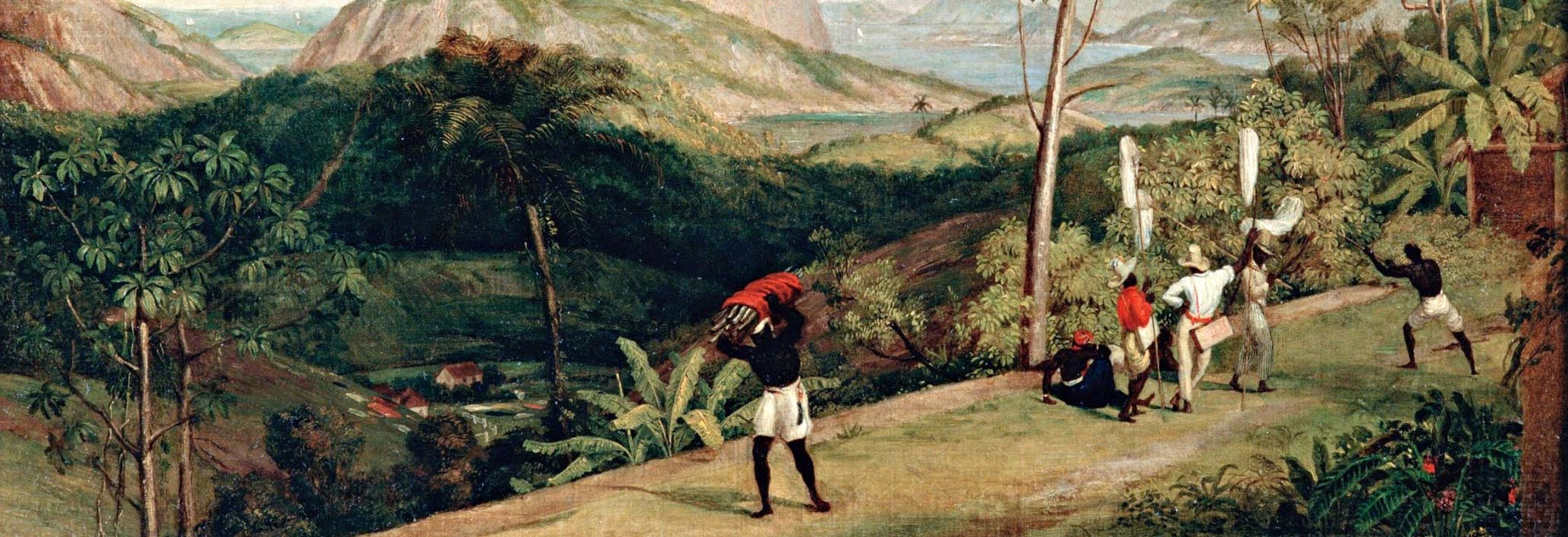John Jean was a slave, freedman, mariner, preacher, and author of two books, most notably his 1816 autobiography The Life, History, and Unparalleled Sufferings of John Jea, the African Preacher. According to Jea’s autobiography, he was born in the town of Calabar in 1773, in what is today southeastern Nigeria. When he was two-and-a-half years old, he was captured and enslaved along with his father, mother, brothers, and sisters. Upon arriving in North America, they were sold to Oliver and Angelika Triebuen near New York City, for whom they worked long hours and were given meager amounts of food.
As an adolescent, Jea searched for religious meaning in his life, finally finding it in Christianity. In his autobiography, he reported of his baptism around the age of fifteen, which he claimed he leveraged against his master for his freedom. Historians claim that this seems unlikely, since American laws at this time did not require masters to free baptized slaves. They thus argue that Jea’s autobiography should not be understood as literal history, but as a text of religious importance used in favor of the cause of the abolition of slavery. Historians also believe that his autobiography was not written by Jea himself, but dictated.
In Jea’s The Life, History, and Unparalleled Sufferings of John Jea, the African Preacher, he recounted preaching in North America, Europe, and the East Indies. He also discussed three different marriages, one to a Native American, one to a native of Malta, and his last wife an Irishwoman. He reported that his first wife, Elizabeth, was pressured by her employer to renounce Jea because they believed his religiosity offensive. Jea wrote that his wife became emotionally unstable and killed their daughter and her own mother. He claimed Elizabeth was an unrepentant sinner, but historians dispute this, claiming that she became mentally deranged due to stresses from her husband and employer as well as her disadvantageous position as a Native American woman reliant on others for economic support. Records from Portsmouth, England, list Jea’s marriage to Jemima Davis, who would thus be his fourth wife. In 1817, following the publication of his autobiography, Jemima gave birth to their daughter, Hephzabah.
Jea’s Life presents many fantastical claims. He stated that he prayed to become literate, and an angel granted him the ability to read the Bible, but left him unable to read anything else. In this way, Jea’s writings reflect the wider spread of evangelical Protestantism and a rejection of more hierarchical forms of Christianity. Evangelical Christianity usually resonated much more with West African slaves than other popular branches of Christianity, reinforcing West African beliefs in deities that actively intervened in the world.
John Jea’s autobiography is most notable for its religious and abolitionist dimensions. He viewed slavery and freedom as religious questions, where slavery was anathema to Christian belief. By keeping Christianity away from slaves, and putting forth masters as the guides of slaves rather than God, slavery corrupted the moral fabric of society. Jea’s own resistance to slavery involved his conversion to Christianity and his subsequent liberation from slavery. He gained his freedom and found his paid work, although he struggled with the racism of early America.
Little is known about Jea’s death, but historians believe he died around 1817.
Read the full, original biography by Richard J. Bell in the African American National Biography
Online Resources
The Life, History, and Unparalleled Sufferings of John Jea, the African Preacher, Compiled and Written by Himself (available online through UNC’s Documenting the American South): https://docsouth.unc.edu/neh/jeajohn/jeajohn.html
Bibliography
Hodges, Graham Russell, ed. Black Itinerants of the Gospel: The Narratives of John Jea and George White. Madison: Madison House, 1993.
Jea, John. The Life, History, and Unparalleled Sufferings of John Jea, the African Preacher, Compiled and Written by Himself. Documenting the American South, Accessed October 29 2018, https://docsouth.unc.edu/neh/jeajohn/jeajohn.html.
Saillant, John. "Jea, John." Encyclopedia of African American History, 1619-1895: From the Colonial Period to the Age of Frederick Douglass, edited by Ed. Paul Finkelman. Oxford African American Studies Center, http://www.oxfordaasc.com/article/opr/t0004/e0310 (accessed Thu Sep 05 11:00:44 EDT 2019).
Saillant, John. “Traveling in Old and New Worlds with John Jea, the African Preacher, 1773-1816,” Journal of American Studies 33, no. 3 (1999): 473-90.
Author
Richard J. Bell
Adapted by
David Glovsky and Elizabeth Timbs
Contributing Institutions
Hutchins Center for African & African American Research, Harvard University, Cambridge, MA.
Oxford University Press (USA) African American Studies Center.





